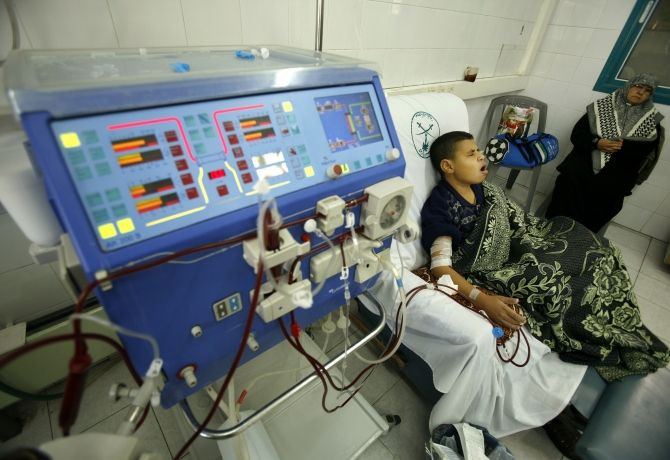The Most Commonly Prescribed Antibiotics May Not Always Be the Best Choice

Antibiotic treatment for patients suffering from blood stream infections is essential for the livelihood of those patients. Without the proper antibiotic treatment, more than 80 percent of patients will die. New studies reveal the most commonly prescribed antibiotics may not be the best remedy for those patients.
When viruses such as Staphylococcus aureus (S. aureus) become present in a patient's bloodstream, the infection becomes fatal. Antibiotics for bloodstream infections often can cure this infection.
In a study conducted by Kevin Chan, MD of the Fresenius Medical Care North America and Massachusetts General Hospital, and his colleagues, they found although vancomycin is what is regularly prescribed to dialysis patients for blood stream infections; cefazolin was 38 percent better than more prescribed vancomycin.
Chan and his colleagues compared the efficiency of various antibiotics at preventing hospitalization and death among patients with bloodstream infections. They assessed more than 500,000 blood culture results from their chronic kidney disease database, aiming to find methicillin-sensitive strains of S. aureus bloodstream infections. Chan also observed the differences between patients who were either prescribed vancomycin or cefazolin to treat their illness. Physicians often choose vancomycin over other antibiotics, because it is widely known to have broad coverage against many strains of bacteria. Additionally, it is also important for physicans to factor the antibiotic's killing power and tissue penetration.
The study revealed 56 percent of patients on vancomycin after blood culture results reported S. aureus bacteria that were vulnerable to cefazolin, whereas only 17 percent of patients were treated with cefazolin. Of those patients prescribed cefazolin, they experienced a 38 percent lower rate of hospitalization and death compared to those taking vancomycin. Patients being treated with cefazolin also had a 48 percent lower rate of sepsis, which is the most severe form of bloodstream infection.
“I think the data suggest there is an opportunity to improve outcomes for patients through appropriate antibiotic selection,” Dr. Chan said.
The study was published in the Journal of the American Society of Nephrology.



























